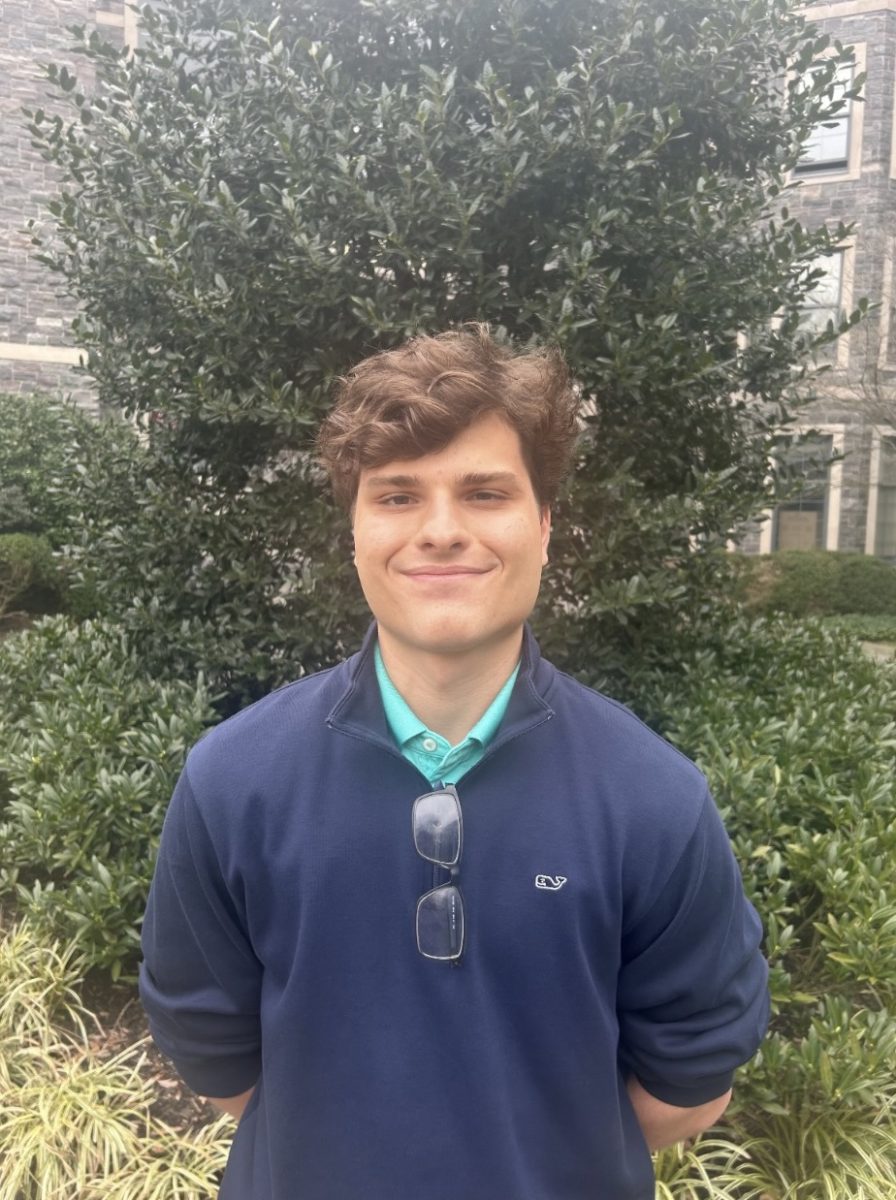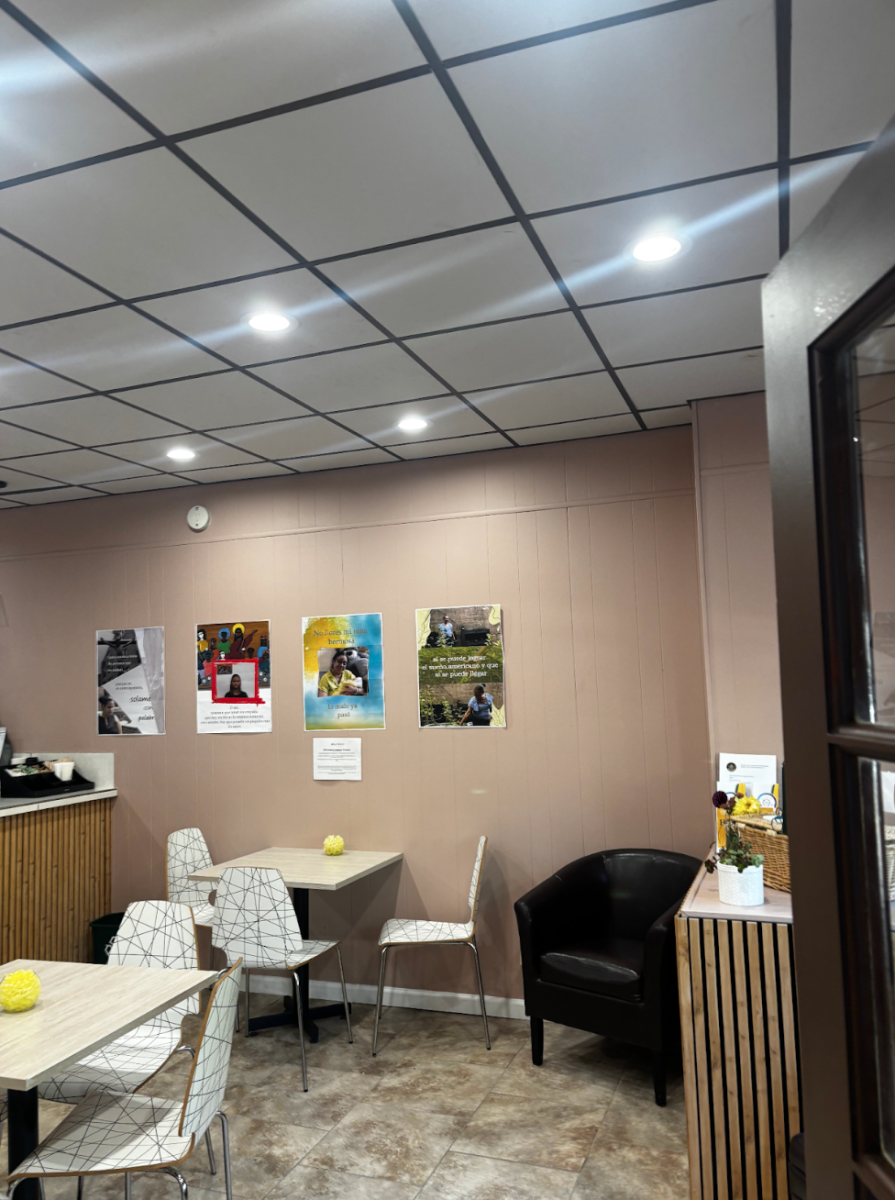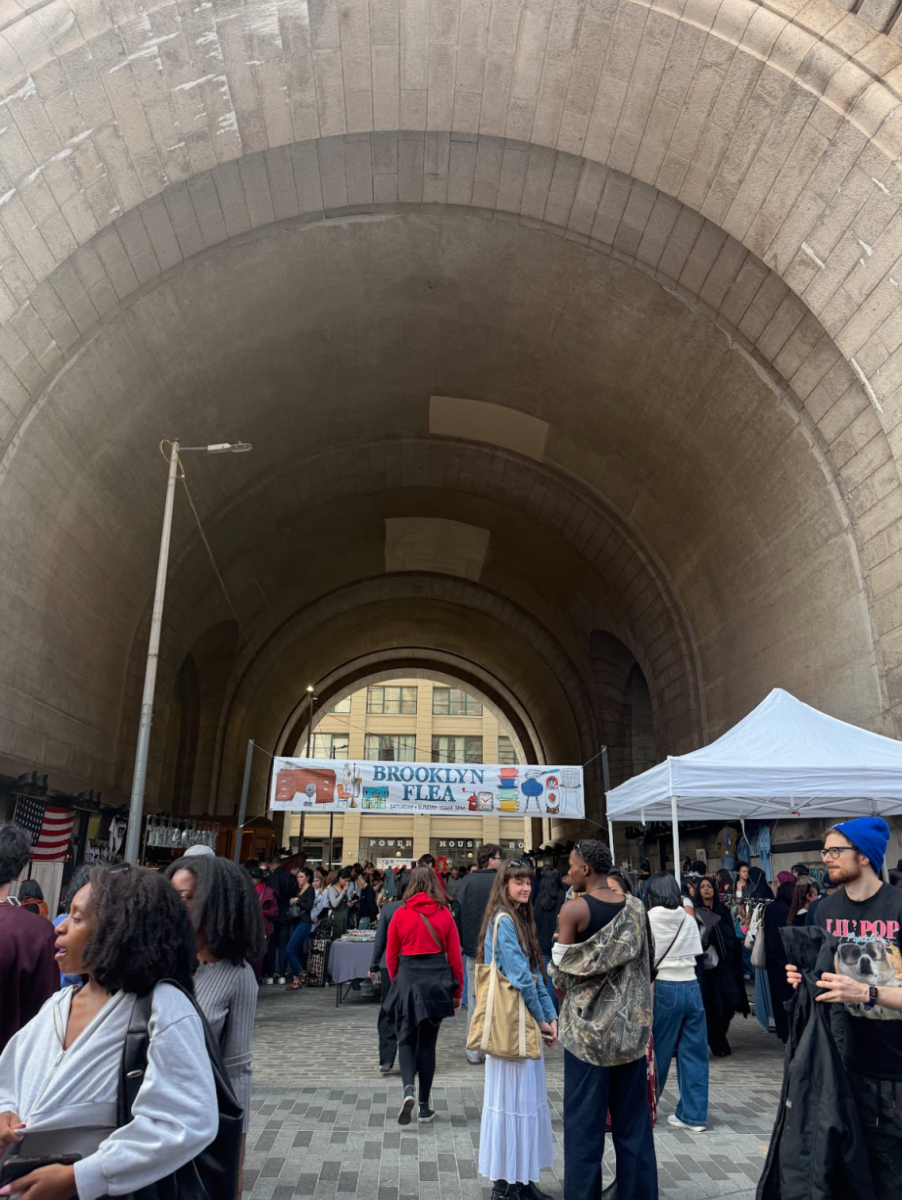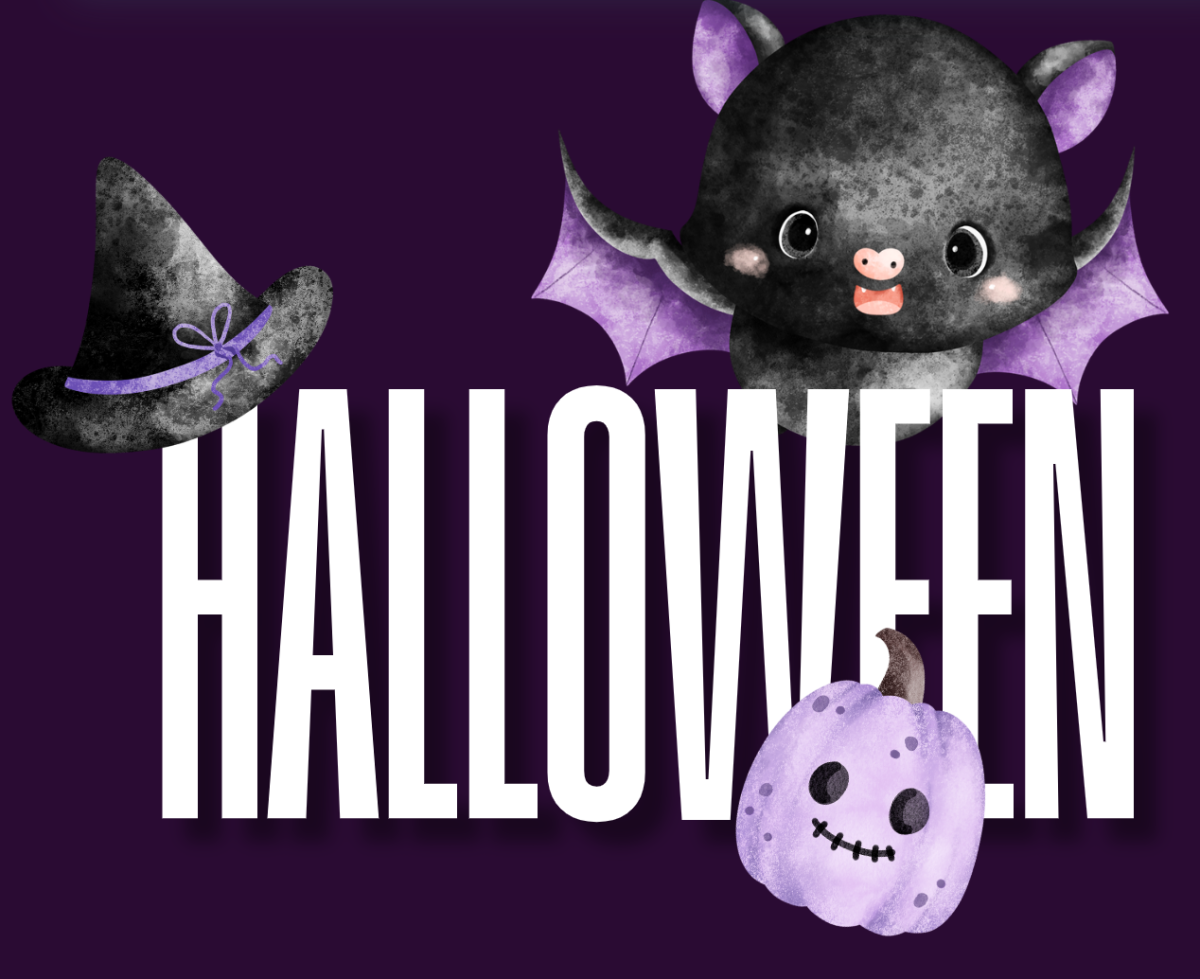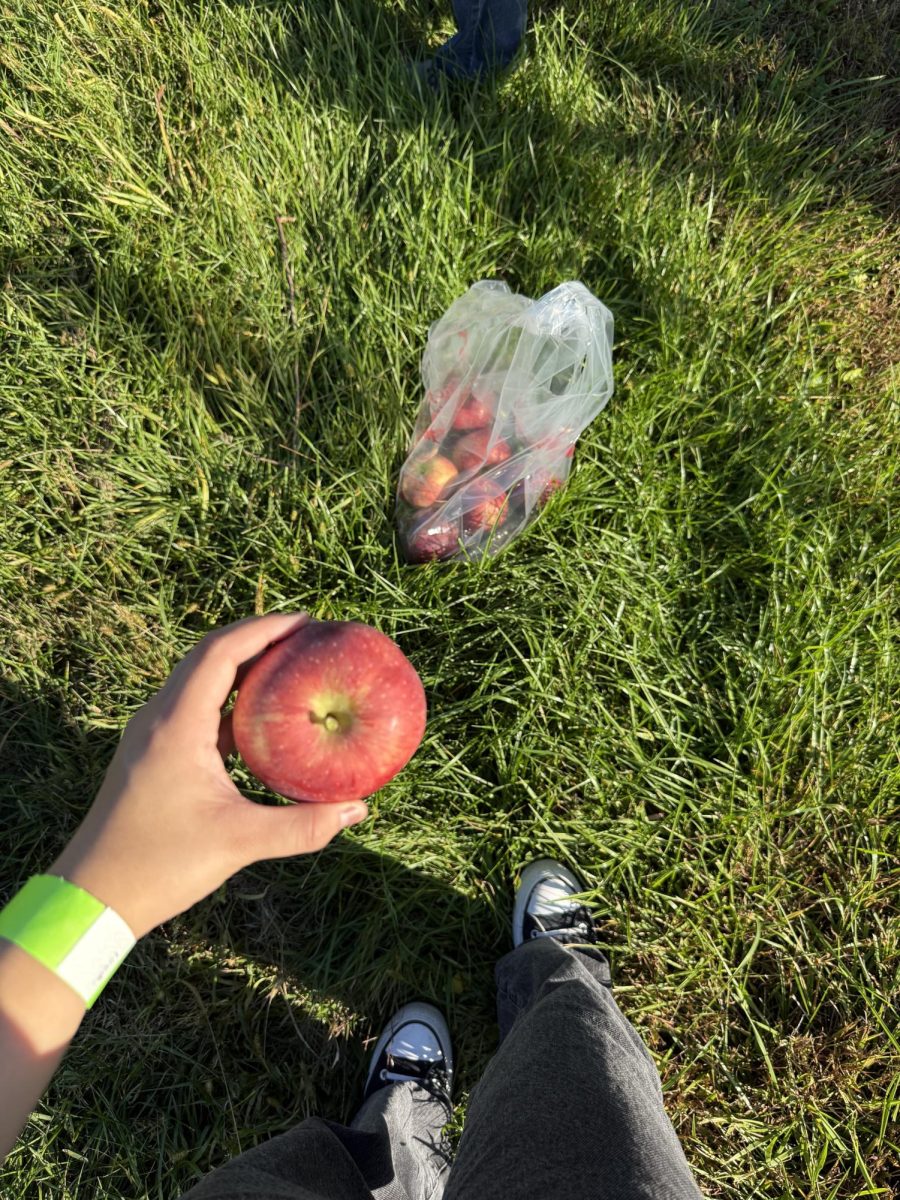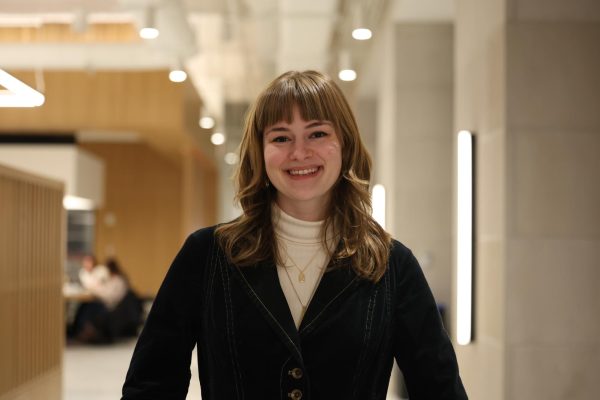For Andres Caballero, FCRH ’26, getting involved in his community is a necessary part of belonging.
For the past few semesters, he has been making waves in the community as a student, a volunteer, and a good neighbor. In the fall of 2022, Caballero began organizing what he calls “food walks,” where students can use their extra meal swipes each week to purchase food on-campus and take them across the street to a local food bank. Since beginning the initiative, Caballero says that the food walks have grown significantly, with more people participating each semester.
There are a lot of components to organizing such an extensive community engagement project, but the most important is actually having the idea. It was just a few weeks into his first semester at Fordham University when Caballero came up with the project. With an unlimited meal plan, Caballero found himself eating most of his on-campus meals at the McShane Campus Center cafeteria, which meant that he often had around six to eight leftover meal exchange swipes each week. Rather than let the pre-paid swipes go to waste, Caballero wanted to figure out another use for them. “They’re already paid for by the students,” he said, “so I felt like it was a necessity to put them to public use.”
Since the end of the 2022-23 school year, Caballero has worked with another student organizer, John Wenz, FCRH ’26, to bolster the project. The two brainstormed ideas over the summer for how to improve their project and came back to campus in the fall with renewed energy. Since the fall 2023 semester, Caballero said, “a lot of people have been contributing a lot with donations. So far, we’ve collected over 2,000 meals. We want to keep growing.”
The food walks are a hefty commitment, with hundreds of donations made each week. Caballero says that he and Wenz keep each other accountable. In addition to managing the food walks, Caballero also volunteers time at Jonas Bronck Academy as a holistic mentor to students. The hours spent doing community work have been very fulfilling for Caballero, who sees service not as an every once-in-a-while thing, but as a necessary contribution to society.
Originally born in Caracas, Venezuela, Caballero moved to Miami at the age of nine. Leaving behind his close friends and family members, Caballero had to contend with a massive change in environment. “What was most difficult for me when I first moved was adapting to the language differences,” Caballero said. In addition to the technical challenges of learning a new language, Caballero also faced ridicule from some classmates and coaches as a result of his accent.
Despite this, Caballero adapted to his new community fairly quickly and says he can now “look back on [his] early childhood years in Miami with a smile.” According to Caballero, those years were also essential to his development as a person, and his ability to adapt to a change in environment has served him well during his time at Fordham.
Going into Fordham, he wanted to learn more about the surrounding Belmont and Fordham neighborhoods. Both neighborhoods, along with many others in the Bronx, are home to people who have to grapple with diminishing educational resources and increasing rates of food insecurity and poverty as a result of many historical and socioeconomic factors. According to Hunter College’s New York City Food Policy Center, roughly a quarter of all Belmont and Fordham residents face food insecurity. These devastating numbers have been a driving force for Caballero’s food walks initiative.
Local food banks like Part of the Solution (POTS) help reduce food insecurity for many community members. When Caballero came up with the idea of donating his excess meal swipes, POTS was one of the first food banks on his radar. “They were already involved with Fordham,” Caballero said, “so I thought that would be a good place to start.”
Working with the volunteers and staff at POTS has been great for the project because the staff has experience organizing similar projects, and they provide a crucial homebase for actual food distribution. Although Caballero’s food walks are largely self-organized, he does have help from other important resources like the staff at Boar’s Head Deli on campus. Caballero said, “We’ve built a pretty good relationship with some of the people at POTS and at [Boar’s Head].” As the food orders grow, Caballero also said that the workers at Boar’s Head have been very helpful. It isn’t easy to make what is often hundreds of extra sandwiches each week for the project, but according to Caballero, the staff at the on-campus deli have been great about helping with the initiative.
Charmaine Francis, a manager at Boar’s Head, corroborated this, saying, “It’s a little extra work on us, but it’s a pleasure to support him in this venture.” Francis also said that supporting Caballero in his project has been great because the “idea is so beautiful” and “he’s doing an excellent job.”
Clearly, Caballero has already had an immense impact on his community, both on-campus and off. He’s provided students with an easy opportunity to do good in their community while also facilitating food distribution on the other end. Still, Caballero says his work isn’t done. He wants his fellow students to change their mindset on community engagement. “If you have the time and the money,” Caballero said, “you have the means to do something positive, and you should contribute something.” Caballero wants to encourage all students to connect with their community and determine where their skills can be of the greatest benefit, but if students are looking for a place to begin, participating in Caballero’s food walks can be a great start.
To learn more about getting involved or donating extra meal swipes, you can contact Caballero at his Fordham email: [email protected].





































































































































































































